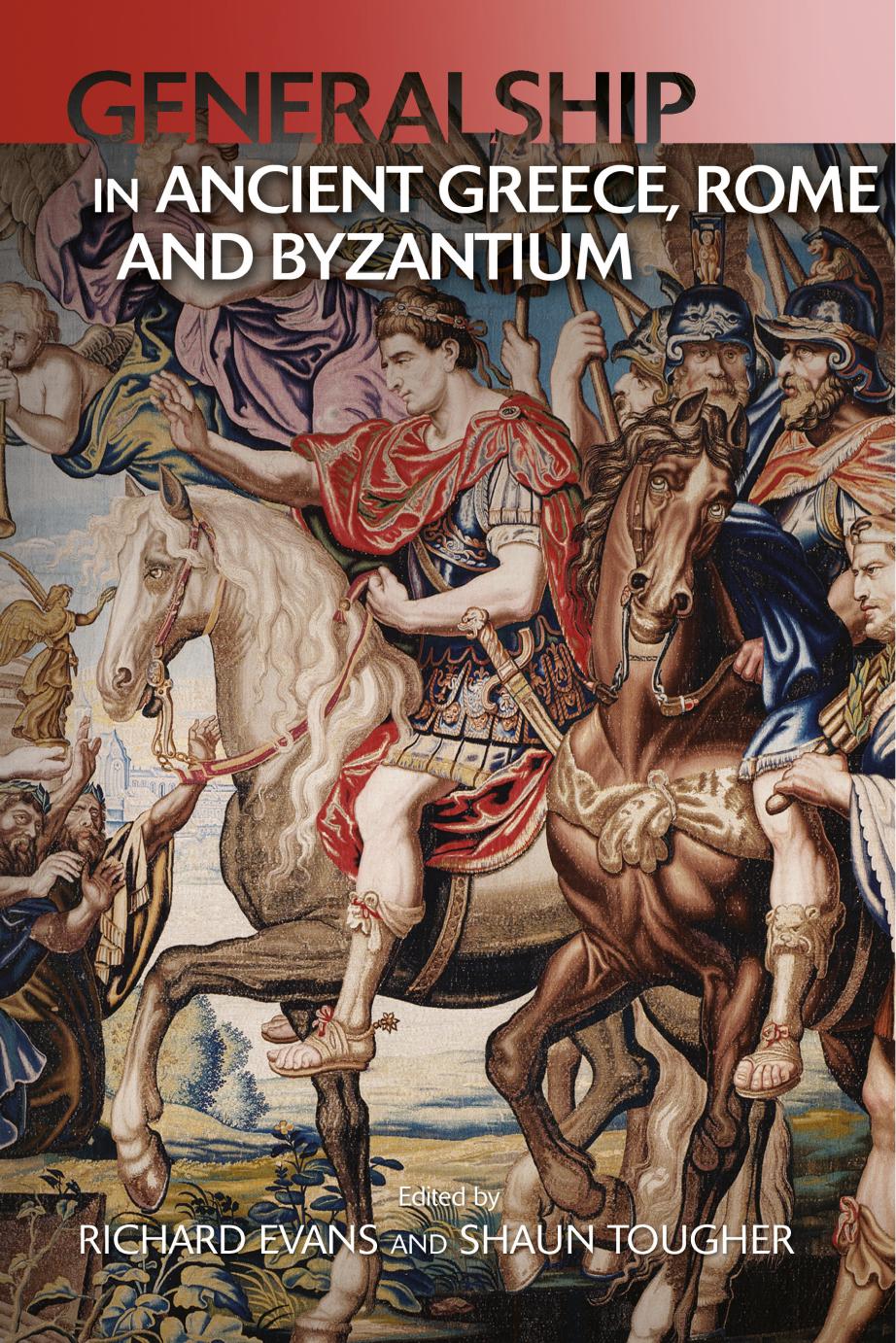Military Leadership From Ancient Greece to Byzantium: The Art of Generalship by Shaun Tougher;Richard Evans;

Author:Shaun Tougher;Richard Evans;
Language: eng
Format: epub, pdf
ISBN: 9781474459976
Publisher: Edinburgh University Press
Conclusion
Hence, I find Procopiusâ depiction of Gelimer to be less sympathetic than some.92 As in the Strategikon, successful generals in the Wars had to control their own and their menâs fear, be prepared for defeat and adapt to tycheâs entanglements. Gelimer fails on all fronts. He leaves his cities without walls, neglects to predict Belisariusâ southern approach, underestimates his opponents and twice deserts his men when they need him most. In sharp contrast to Belisarius, he never tests his luck when the tides of fortune turn against him; instead, as with Basiliscus in 468, he cravenly flees.
The topos of fear remains a driving force throughout. I believe that the prominence of fear in the structure of the Vandal War was a conscious decision on Procopiusâ part, much more than mere garnish absorbed thoughtlessly from his classical models. The first half of the Vandal War is fundamentally a story about the value of rational fear and the dangers of overconfidence during the shifting fortunes of a military campaign. Procopius associates Gelimerâs incompetence as a leader with the Vandal kingâs inability to, at first, experience rational fear when Belisariusâ army approaches his realm, and next when he does not manage the emotion during the heat of battle. I contend, therefore, that the Roman victory over the Vandals was not âdue to dumb luckâ, as supposed by Anthony Kaldellis,93 but determined in large part by Procopiusâ belief in moral differences between Gelimer and Belisarius.94
With his portrait of Belisarius, Procopius illuminates an ideal of generalship that was difficult for others, Roman and non-Roman, to match. The remainder of Book 4, after Belisarius departs from North Africa, paints a far gloomier picture of the return to Roman rule. Indeed, his lurid invective, the Secret History, is even more fervid, with Procopiusâ denunciations of Justinianâs conduct of the military campaigns and criticisms of Belisarius.95 It is tempting, but misleading, to conclude on the basis of this evidence that Procopius had turned against Belisarius or rejected the justice of the Romansâ reoccupation of the lost African territories. When reading the Wars, we should not rely primarily on the criticisms, while ignoring the praise. I concur with a scholarâs recent assessment that the Wars âis, in fact, much more open-ended than we may be willing to admitâ.96 In my reading, Procopius laments the messy process behind the reintegration of Vandalic North Africa back into the empire, not the justice of the Roman cause. Moreover, since for Procopius virtue-based generalship contributes heavily to victories, it follows logically that a generalâs moral shortcomings contribute to defeats. Certainly, we should not underestimate the role that generalship plays in Procopiusâ vision of the Romansâ triumphs over first the Vandals and then the Moors. As with another writer associated with Justinianâs regime â the North African court rhetorician Corippus â for Procopius, virtuous generalship would play a significant role in returning Vandalic Africa to the Roman fold, while internal bickering, avarice, unmanly cowardice, intolerance and unjust behaviour by the Roman soldiery would lead to chaos and insurrection.
Download
Military Leadership From Ancient Greece to Byzantium: The Art of Generalship by Shaun Tougher;Richard Evans;.pdf
This site does not store any files on its server. We only index and link to content provided by other sites. Please contact the content providers to delete copyright contents if any and email us, we'll remove relevant links or contents immediately.
The European Opportunity by Felipe Fernández-Armesto(586)
The European History Highway: A Guide to Internet Resources by Dennis A. Trinkle Scott A. Merriman(543)
Morgan Kaufmann Digital Watermarking and Steganography by Ingemar Cox Matthew Miller Jeffrey Bloom Jessica Fridrich Ton(539)
The Seven Wonders of the Ancient World by Michael Denis Higgins(530)
European Security without the Soviet Union by Stuart Croft Phil Williams(514)
Hyperculture by Byung-Chul Han(513)
The Routledge companion to Christian ethics by D. Stephen Long Rebekah L. Miles(510)
European Security in a Global Context by Thierry Tardy(508)
Get Real with Storytime by Julie Dietzel-Glair & Marianne Crandall Follis(454)
Hudud Al-'Alam 'The Regions of the World' - a Persian Geography 372 A.H. (982 AD) by V. V. Minorsky & C. E. Bosworth(446)
Tibetan Studies in Comparative Perspective by Chih-yu Shih Yu-Wen Chen(437)
Gorbachev And His Generals by William C. Green(430)
Governance, Growth and Global Leadership by Espen Moe(429)
CliffsNotes on Fitzgerald's The Great Gatsby by Kate Maurer(416)
How Languages Are Learned 5th Edition by Patsy M Lightbown;Nina Spada; & Nina Spada(410)
The Oxford History of the World by Fernández-Armesto Felipe;(393)
The Egyptian Economy, 1952-2000 by Khalid Ikram(389)
The Oxford Handbook of the Incas by Sonia Alconini(375)
Oral Poetry and Narratives from Central Arabia: The Poetry of Ad-Dindan : A Bedouin Bard in Southern Najd (Studies in Arabic Literature, Vol 17) (English and Arabic Edition) by P. M. Kupershoek P. Marcel Kurpershoek(368)
